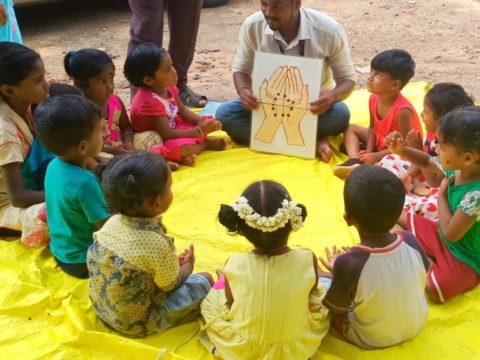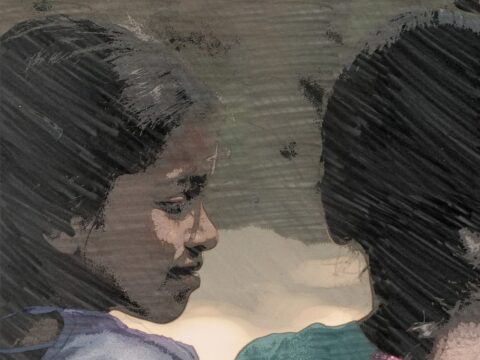Last week, Amala and John Peter attended a disability training workshop in Chennai. The session was organized by the International Childcare trust, a children’s rights organization that works in partnership with local organizations in Africa and Asia. The focus of the workshop was on “Strengthening program and policy to promote rights of disabled children and young people in South Asia,” held at the Egmore YWCA.
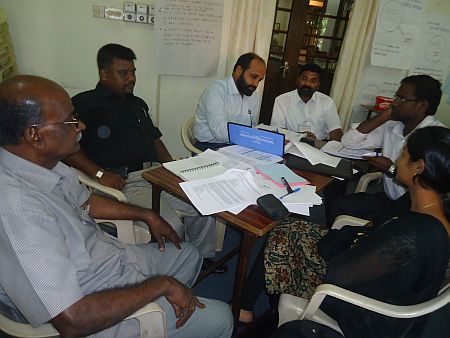
Over 30 participants from a wide cross-section of NGOs from across India took part in the workshop, which aimed to inform, sensitize, and enable social workers working with children to address the needs of children with disabilities at both a practical and policy level.
Participants learned of three approaches to working with individuals with disabilities:
- Medical: the most traditional and expensive approach;
- Charity: which treats people with disabilities as helpless victims of their impairment, deserving of charity;
- Social (or inclusive) Model: an approach which sees “disability” as a socially created problem. Disability is not an individual attribute, but a set of social, medical, and cultural conditions, the management of which requires collective, collaborative social action.
This last perspective builds on the UN Convention on the Rights of Persons with Disabilities, and holds that disability is not a medical, but a Human Rights issue.
Through group exercises, smaller break-out group discussions, and other similar activities, the workshop encouraged participants to think of the ways in which they each could implement the guiding principles of the UN Convention (signed by India in 2007) in their daily work.
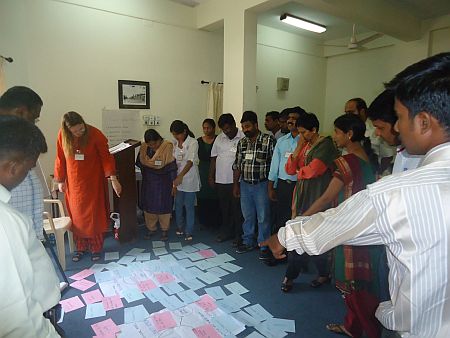
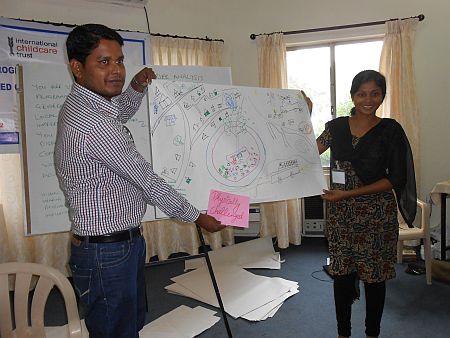
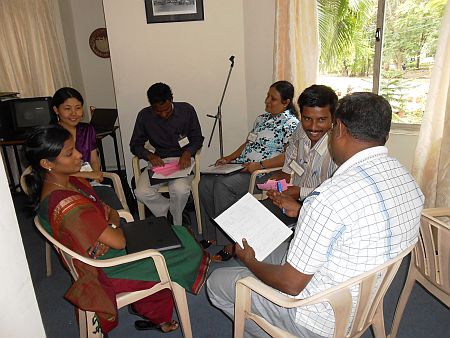 Such capacity-building sessions are critical for Sharana social workers’ growth and development, both professionally, and in terms of their care for children in Sharana’s at risk programs.
Such capacity-building sessions are critical for Sharana social workers’ growth and development, both professionally, and in terms of their care for children in Sharana’s at risk programs.







